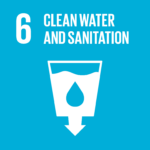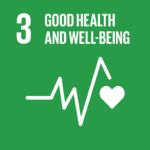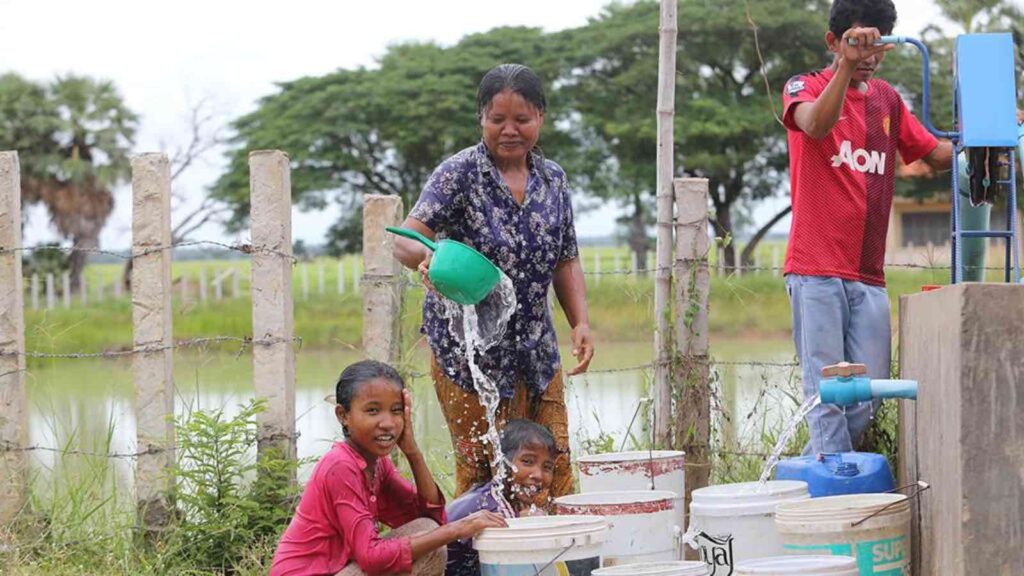ADB Approves $93.6 Million Financing to Support ‘WASH’ Services in Rural Cambodia.
PHNOM PENH, Cambodia — In a significant move to improve water supply, sanitation, and hygiene (WASH) services in rural Cambodia, the Asian Development Bank (ADB) has approved $93.6 million in loans and grants. The funding aims to enhance climate-resilient and inclusive WASH facilities for 88,000 households across 400 villages in 50 communes spanning nine provinces.
RELEVANT SUSTAINABLE GOALS



Expanding Access to Essential Services
The Rural Water Supply, Sanitation, and Hygiene Improvement Sector Development Program is designed to support the Cambodian government’s efforts to achieve universal access to safely managed water supply and basic hygiene services in rural areas. The program also focuses on improving access to sanitation facilities while addressing affordability issues that hinder widespread use.
ADB’s initiative places a strong emphasis on increasing private sector involvement in delivering water supply services. Additionally, the program integrates climate change considerations into the planning, design, and implementation of WASH facilities to ensure their resilience. Strengthening stakeholder coordination and decentralizing functions are also key components aimed at enhancing service delivery.
“The program supports ‘WASH for all’ by prioritizing rural populations in remote areas,” said Jyotsana Varma, ADB Country Director for Cambodia. “It proposes reforms to strengthen governance in the management of community-managed WASH facilities and scale up government planning for sustainability and climate resilience.”
Targeting the Most Vulnerable Regions
A significant aspect of the program is a $3 million grant from the Japan Fund for Prosperous and Resilient Asia and the Pacific, which will help expand WASH facilities in provinces where rural residents face the greatest challenges accessing safe water, sanitation, and hygiene services. The targeted provinces include Banteay Meanchey, Battambang, Kampong Speu, Kampot, Kratie, Oddar Meanchey, Pailin, Preah Vihear, and Stung Treng.
Further support comes from a $600,000 technical assistance grant financed by the Sanitation Financing Partnership Trust Fund under the Water Financing Partnership Facility. This grant aims to bolster government capacity to implement key sector reforms, ensuring the effectiveness and sustainability of the program’s initiatives.
Addressing Critical Gaps in Rural Cambodia
Cambodia faces significant challenges in meeting its WASH targets, particularly in rural areas. As of 2022, only 29% of the country’s population had access to safely managed water supplies, with rural access even lower at 20%. Sanitation access was also limited, with 37% of the national population and 34% of rural residents having access to safely managed sanitation facilities. Open defecation remains a critical issue, practiced by about two million rural residents, posing serious risks to land and water resources through contamination and the spread of waterborne diseases.
Since 2005, ADB has been a key partner in supporting Cambodia’s WASH sector, benefiting over one million people, especially in provinces surrounding Tonle Sap Lake. The continued partnership aims to address these critical gaps and enhance the quality of life for rural Cambodians.
ADB’s ongoing support for Cambodia’s WASH sector aligns with its broader mission to achieve a prosperous, inclusive, resilient, and sustainable Asia and the Pacific. Established in 1966, ADB is owned by 68 members, 49 of which are from the region. The bank remains committed to eradicating extreme poverty and supporting sustainable development initiatives across its member countries.
With this new funding approval, ADB reinforces its dedication to Cambodia’s development goals, particularly in the face of climate challenges. By expanding access to essential WASH services, the program not only aims to improve health outcomes but also to build a more resilient infrastructure that can withstand the increasing threats posed by climate change.
Lead image courtesy of ADB (Villagers in Phnom Dey commune of Cambodia’s Banteay Meanchey province accessing water from a well rehabilitated through ADB support).
You may also be interested in :
Global Warming Could Make Groundwater Undrinkable for 75 Million by 2100





